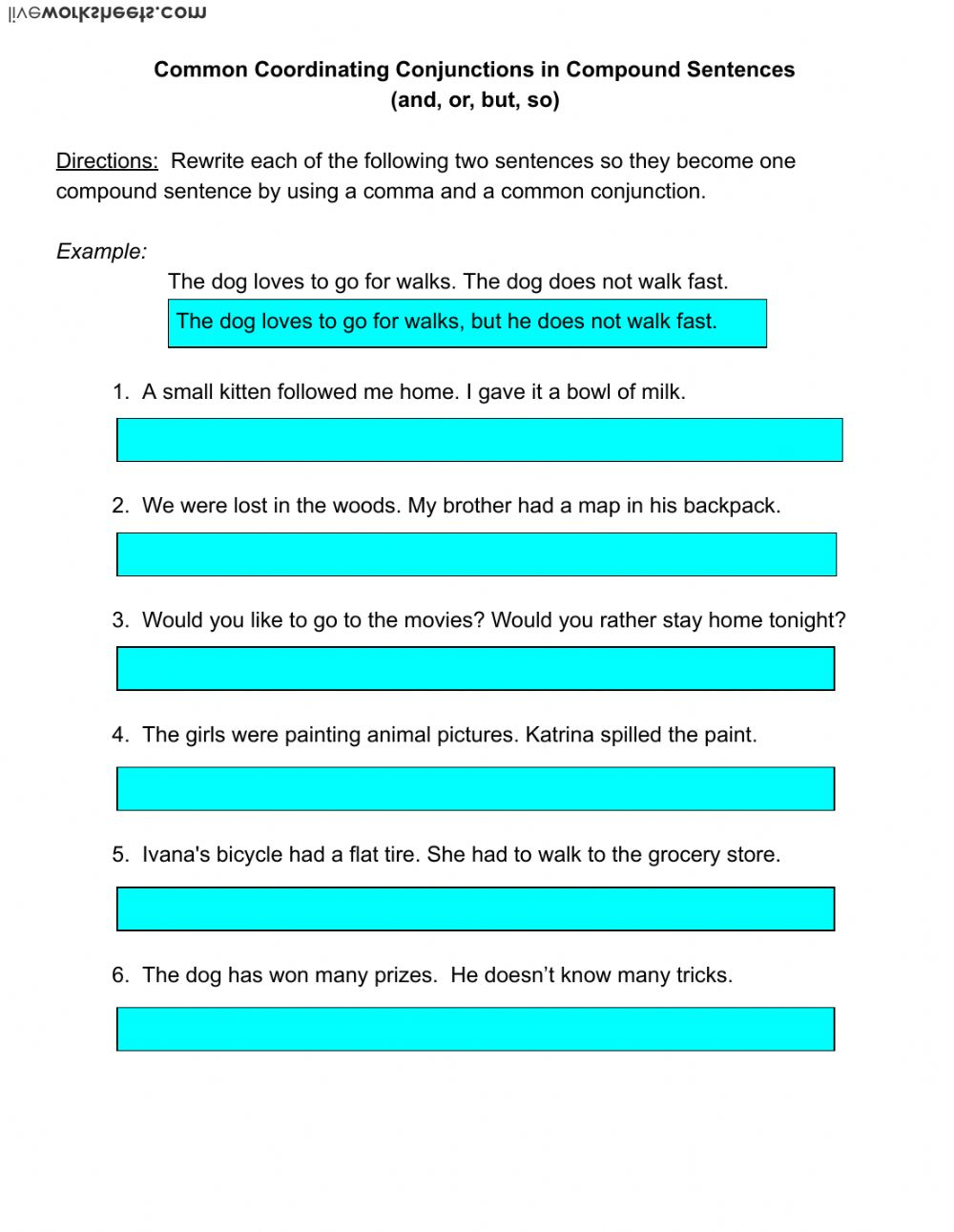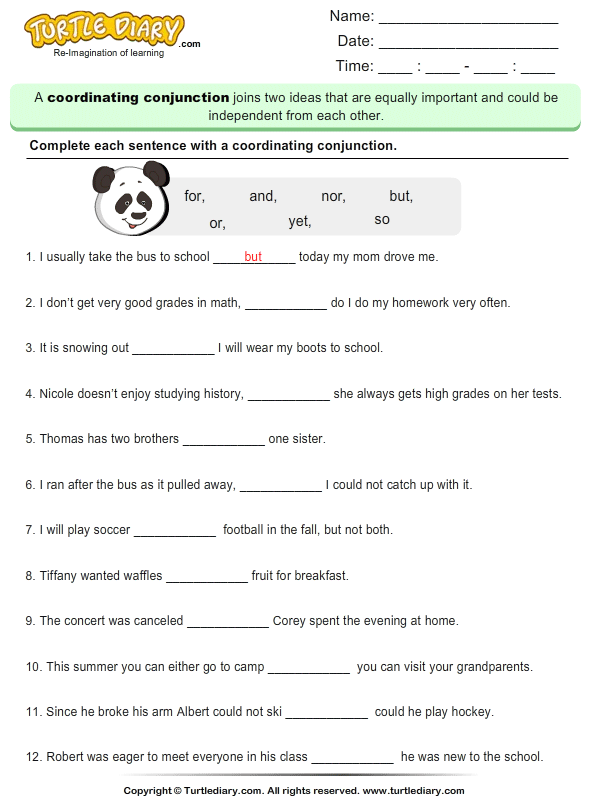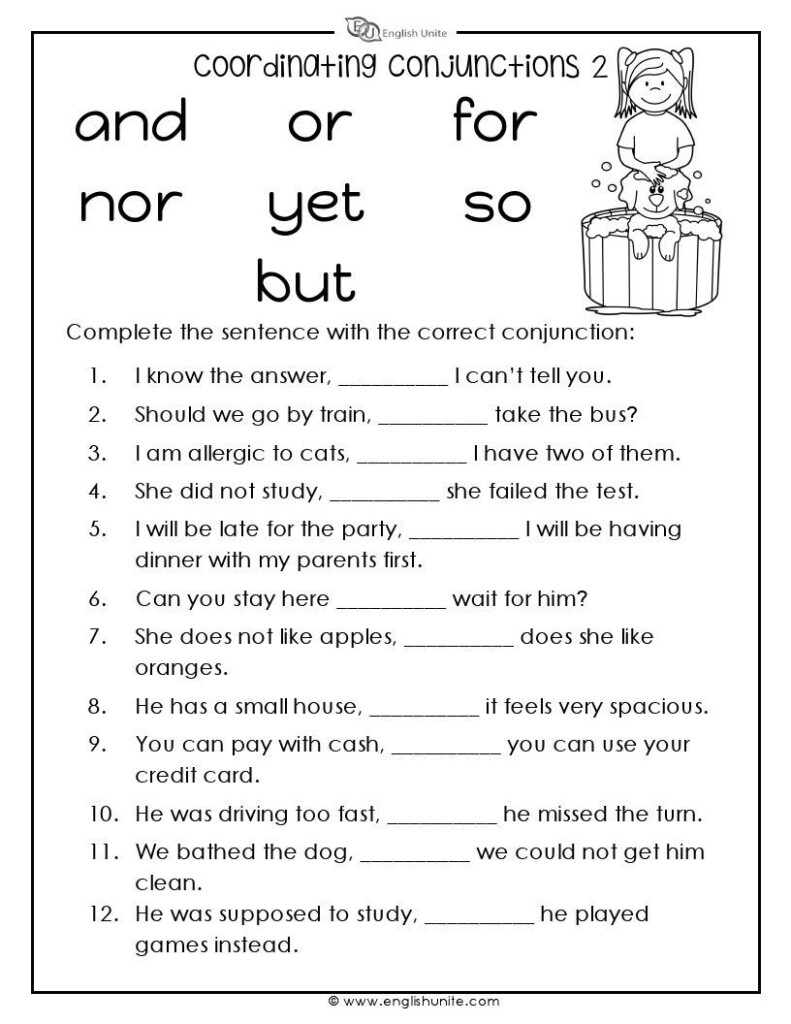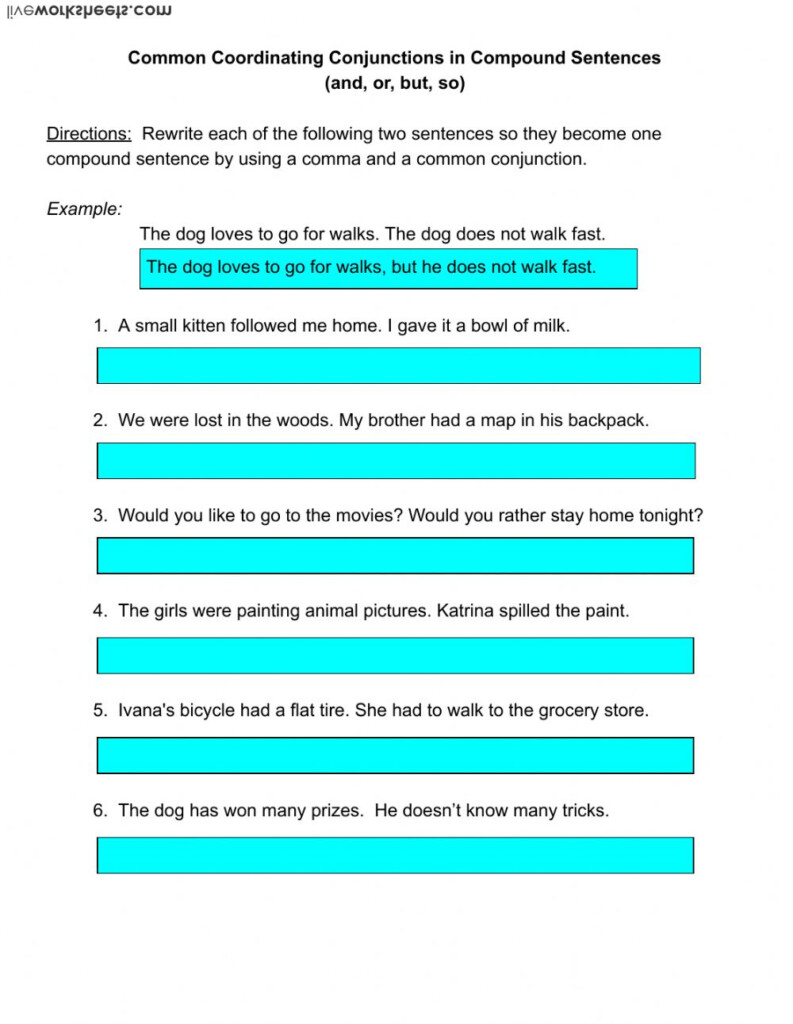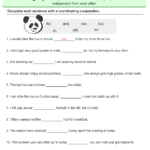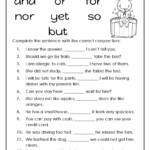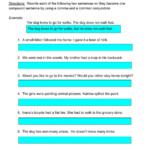Complex Sentences With Coordinating Conjuctions Worksheet Pdf – PDF Sentence Worksheets help students learn and practice the rules of English grammar. These worksheets are beneficial for both teachers and students. They come in different formats and can be used by children in grades 1 through 2. These worksheets help children to improve their writing skills and understand the difference between compound and simple sentences.
Simple sentences
If you’re looking for a simple sentence worksheet to help your child with their reading comprehension skills, you’ve come to the right place. We’ve collected 20 examples of sentences that include simple predicates and subjects for you to download and print. Each sentence is accompanied by an interactive worksheet that allows your child to read the examples, analyze them, and write their own sentences.
This type of sentence worksheet includes a series of exercises that focus on identifying the subjects and verbs of a sentence. Students can create sentences by using colorful noun cards and verb cards. Students will learn the correct use of punctuation and practice how words should be used in sentences.
There are many ways you can use simple sentence worksheets, whether you need them for your own personal use or to share with others. Many worksheets will help students break down sentences into their components, such as nouns and verbs. Choosing a topic to write about is another way to use these worksheets. Once students understand the structure of a sentence, they can brainstorm about what they want to write about.
Complementary sentences
Compound sentences are sentences that contain two or more independent clauses. To create a compound sentence, you must use a comma or coordinating conjunction between the two clauses. The conjunction can be a comma or a semicolon. You can also use dashes in English. These punctuation marks, which are not formalized, are used to insert breaks.
Many PDF sentences worksheets are available online for free. These worksheets are especially useful for teaching kids about sentences. The worksheets provide a perfect home learning task or independent review for students. The worksheets contain ten different compound sentences and require the child to select the correct conjunction. Once a child has mastered these basic skills, they can advance to generating their own sentences. These worksheets can be used by elementary and middle school students and help them to build a solid foundation for understanding and learning.
Run-on sentences
Run-on sentences and sentence fragments are common in writing. Students will learn to recognize these mistakes and how to rewrite them to make them grammatically correct. This will help students improve their comprehension of sentence structure and vocabulary. The lesson also includes a PDF sentence worksheet which can be downloaded to use in the classroom.
Run-on sentences occur when two independent clauses are joined without a connection between them. You can correct a run-on sentence by adding punctuation or using a conjunction. The worksheets are designed for third and fourth grade students to help them understand what a run-on sentence is and how to correct it.
Run-on sentences are often confused with comma splices. To join two clauses, a comma can be used in these situations instead of a period. This type of sentence can often lead to awkward sentence structure.
Fragments
Fragments are an incomplete sentence. They are sentences that do not contain one of the essential parts of a complete sentence. The missing component can be a predicate, verb, subject or idea. In the example below, the missing component is the subject. Regardless of its length, it’s still an incomplete sentence.
Sentence fragments, which are often overlooked, are groups of words that do not make up a complete sentence. A complete sentence is always made up of a subject and a verb. Fragments are incomplete without these parts and may make it difficult for the reader to read. These worksheets will assist students in identifying fragments and transforming them into sentences or thoughts.
